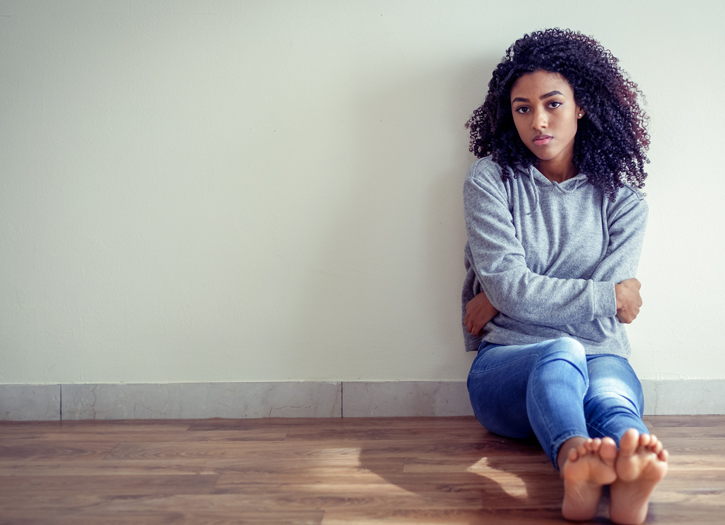The COVID-19 pandemic has impacted the mental health of people around the world. The Guidelines on Mental Health and Psychosocial Support of the Inter-Agency Standing Committee of the United Nations recommends that the core principles of mental health support during an emergency are “do no harm, promote human rights and equality, use participatory approaches, build on existing resources and capacities, adopt multi-layered interventions and work with integrated support systems.” COVID-19 is affecting people’s social connectedness, their trust in people and institutions, their jobs and incomes, as well as imposing a huge toll in terms of anxiety and worry.
The COVID-19 pandemic has caused stress, anxiety and worry for many individuals, arising both from the disease itself and from response measures such as social distancing. Common causes of psychological stress during pandemics include, fear of falling ill and dying, avoiding health care due to fear of being infected while in care, fear of losing work and livelihoods, fear of being socially excluded, fear of being placed in quarantine, feeling of powerlessness in protecting oneself and loved ones, fear of being separated from loved ones and caregivers, refusal to care for vulnerable individuals due to fear of infection, feelings of helplessness, boredom, loneliness and depression due to being isolated and fear of re-living the experience of a previous pandemic.
Frontline workers, such as doctors and nurses may experience additional mental health problems. Stigmatization towards working with COVID-19 patients, stress from using strict biosecurity measures (such as physical strain of protective equipment, need for constant awareness and vigilance, strict procedures to follow, preventing autonomy, physical isolation making it difficult to provide comfort to the sick), higher demands in the work setting, reduced capacity to use social support due to physical distancing and social stigma, insufficient capacity to give self-care, insufficient knowledge about the long-term exposure to individuals infected with COVID-19 and fear that they could pass infection to their loved ones can put frontline workers in additional stress.
A detailed psychological intervention plan was developed by the Second Xiangya Hospital, the Institute of Mental Health, the Medical Psychology Research Center of the Second Xiangya Hospital and the Chinese Medical and Psychological Disease Clinical Medicine Research Center. It focused on building a psychological intervention medical team to provide online courses for medical staff, a psychological assistance hotline team, and psychological interventions. Online mental health education and counselling services were created for social media platforms such as WeChat, Weibo, and TikTok that were widely used by medical staff and the public. Printed books about mental health and COVID-19 were republished online with free electronic copies available through the Chinese Association for Mental Health.
Due to the increase in telecommunication for medical and mental health appointments, the United States government loosened the Health Insurance Portability and Accountability Act (HIPAA) through a limited waiver. This allows clinicians to evaluate and treat individuals though video chatting services that were not previously compliant, allowing for patients to socially distance and receive care.
There has been a heightened concern for individuals suffering from obsessive–compulsive disorder, especially in regards to long-term consequences. Fears regarding infection by the virus, and public health tips calling for hand-washing and sterilization are triggering related compulsions in some OCD sufferers. Some OCD sufferers with cleanliness obsessions are noticing their greatest fears realized. Amid guidelines of social-distancing and quarantining and feelings of separation, some sufferers are seeing an increase in intrusive thoughts, unrelated to contamination obsessions.
There has been a particular concern for sufferers of posttraumatic stress disorder, as well as the potential for medical workers and COVID–19 patients to develop PTSD-like symptoms. In late March 2020, researchers in China found that, based on a PTSD checklist questionnaire provided to 714 discharged COVID–19 patients, 96.2 percent had serious prevalent PTSD symptoms.
School closures also caused anxiety for students with special needs as daily routines are suspended or changed and all therapy or social skills groups also halted. Others who have incorporated their school routines into coping mechanisms for their mental health, have had an increase in depression and difficulty in adjusting back into normal routines.







Add Comment
You must be logged in to post a comment.